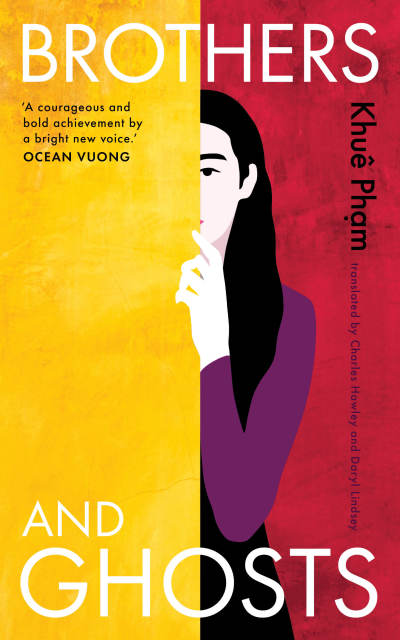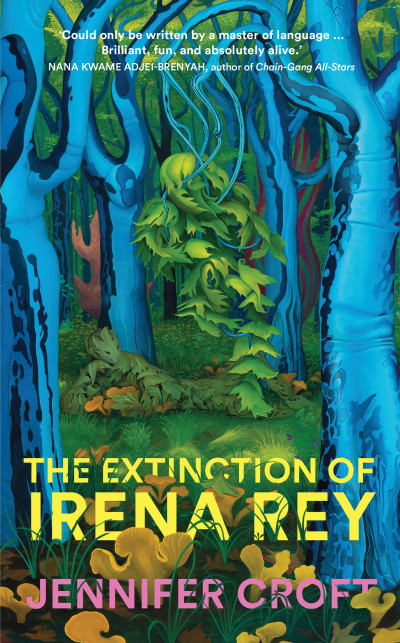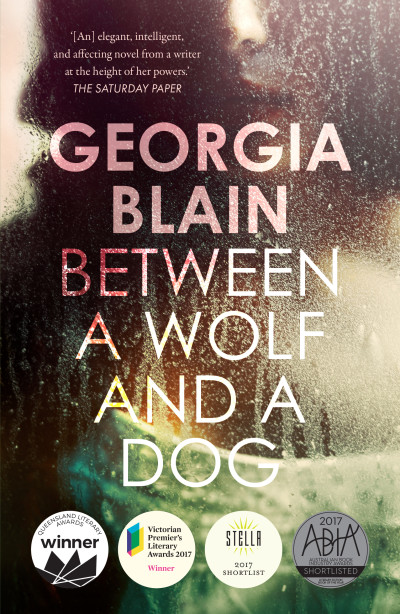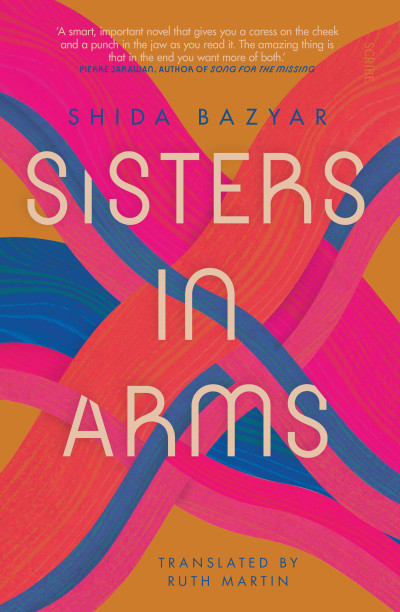‘Cristina Sandu's narration is magical … Her poetic and airy prose weaves together the strongly metaphorical and the realistic … In these moving stories about the fates of Eastern European women, her narrative is universal and titanic.’
Suomen Kuvalehti
‘There are a lot of subsurface vibrations in the book. Desire, as well as clear threats, but we don’t know whether those actualise. Ingeniously disconnected stories entice the reader to continue. On the other hand, they suggest that Sandu also has larger stories to tell … The accurate, delicate and subtle writing relies on the refined and sparing characteristics of the Finnish modernism.’
Helsingin Sanomat
‘Cristina Sandu’s spare and sparkling prose is intimate and visceral. A deeply moving story about six women who dare to dream bigger than their muddy river, whose lives splinter from their tight synchronized formations into an unflinching, often unforgiving world. An exquisite and powerful read.’
Lindsay Zier-Vogel, author of Letters to Amelia
‘With structural, determined prose, Cristina Sandu embodies the Eastern bloc cryptology of storytelling where strings of non-verbal cues and mistranslations become ways of speaking. Sandu evokes that eerie Soviet sense of hope, brimming with futility and grace.’
Yelena Moskovich, author of The Natashas
‘Skilfully crafted and defined, airy, and multi-layered. Highly praised for the themes of detachment as well as the description of externality and differentness. A work greater than its size gives a chance to pause, feel, and reflect on what one has read.’
Toisinkoinen Literary Prize Jury citation
‘Vivid … Sandu’s direct prose has impact.’
Publishers Weekly
‘Simply and beautifully told, Cristina Sandu’s second novel hides much beneath the surface.’
Daunt Books
‘[A] pocket history of contemporary Europe … an impressive accomplishment.’
Tobias Carroll, Words Without Borders
‘Reminiscent of Wioletta Greg’s Swallowing Mercury, this short but impactful novella follows six young women’s lives, from a river behind to Iron Curtain to the Olympics and eventually, their freedom. Sandu’s English language debut explores the ties between women, the hunger for a better life, and the simultaneously futile and miraculous hope in an unforgiving world.’
Laura Graveline, Brazos Bookstore, LitHub
‘This is a novel that can be devoured in one sitting, but this may not necessarily be the best way to approach the material. Each story is a small gem, Sandu using an almost poetic approach to convey deep sense of character and place in a limited number of words. So that it may be just as rewarding to take some time between each story, to savour each one and allow it to percolate a little before moving on. No matter how readers choose approach it, The Union of Synchronised Swimmers will deliver a unique and affecting experience.’
Robert Goodman, The Blurb
‘Six girls who live behind The Iron Curtain change their leisurely summer swimming routine into something more intense and purposeful. Peeks into their lives as adults are bound together by atmospheric vignettes of their childhood in the river and journey into the world of synchronised swimming. The kind of book you could read in one sitting, one breath, or spread out over weeks of indulgent moments.’
Maggie Henrickson, Carmichael's
‘The Union of Synchronised Swimmers is the exploration of the old notion, ‘the grass is always greener on the other side’. Each of the women finds herself in a very different situation to the one they expected, and yet for all their hopes and dreams, what they find is not always better than what they left. But this is not a dark or depressing book, instead Sandu writes each character with a degree of positivity and optimism whatever their circumstance, leaving us with the feeling that it is ok to wonder what else might be out there for us if we take the chance to seek it.’
Hannah, The Raven Book Store
‘The Union of Synchronised Swimmers is a short, engaging read, and Sandu has done an excellent job on both the story and her English version. There’s a lot to like about these sketches of women in exile, struggling to make a new life for themselves and to block out the memories of their old one … It shows us that whether you jet off to a new job, or sneak across the border in your swimming gear, the mere fact of reaching a new country doesn’t necessarily mean you’ll live happily ever after.’
Tony’s Reading List
‘For a quick, inspiring read, pick up a copy of The Union of Synchronised Swimmers. While it tells the story of six women who, when young workers at a cigarette factory in the ‘not free’ part of an eastern European country, decided to ‘go for it.’ As they swam in the local river, they learned a variety of moves involved in the new sport of synchronised swimming, hoping for a chance at ‘something better.’ Whether you consume this small translated tome in a single gulp or choose to savour it, sip by sip, you’ll be exposed to some new ideas, ideals and even hope.’
Linda B. Aunties
Praise for The Whale Called Goliath:
‘If a debut reaches even a fraction of the lyrical, graceful and melancholic beauty present in Cristina Sandu’s The Whale Called Goliath, or of the exotic reality she weaves from golden fairy-tales, then one can expect a great deal … The story is intertwined with unimaginably exquisite senses and feelings, the delicate and brittle question of what is the world in which we live … This debut is beautiful as a prayer.’
Keskisuomalainen
Praise for The Whale Called Goliath:
‘The debut novelist Cristina Sandu creates both a photographically precise and magical story of what it is like to live between two different cultures. The best thing in the novel is its language: dense, poetic, and sensually beautiful. How far will this young author end up reaching?’
Suomen Kuvalehti
Praise for The Whale Called Goliath:
‘The novel exquisitely describes the pains of multiculturalism … The Whale Called Goliath is at its most luscious in its linguistic expression … It is a pleasure to travel through its delicate, melancholy atmosphere.’
Turun Sanomat























